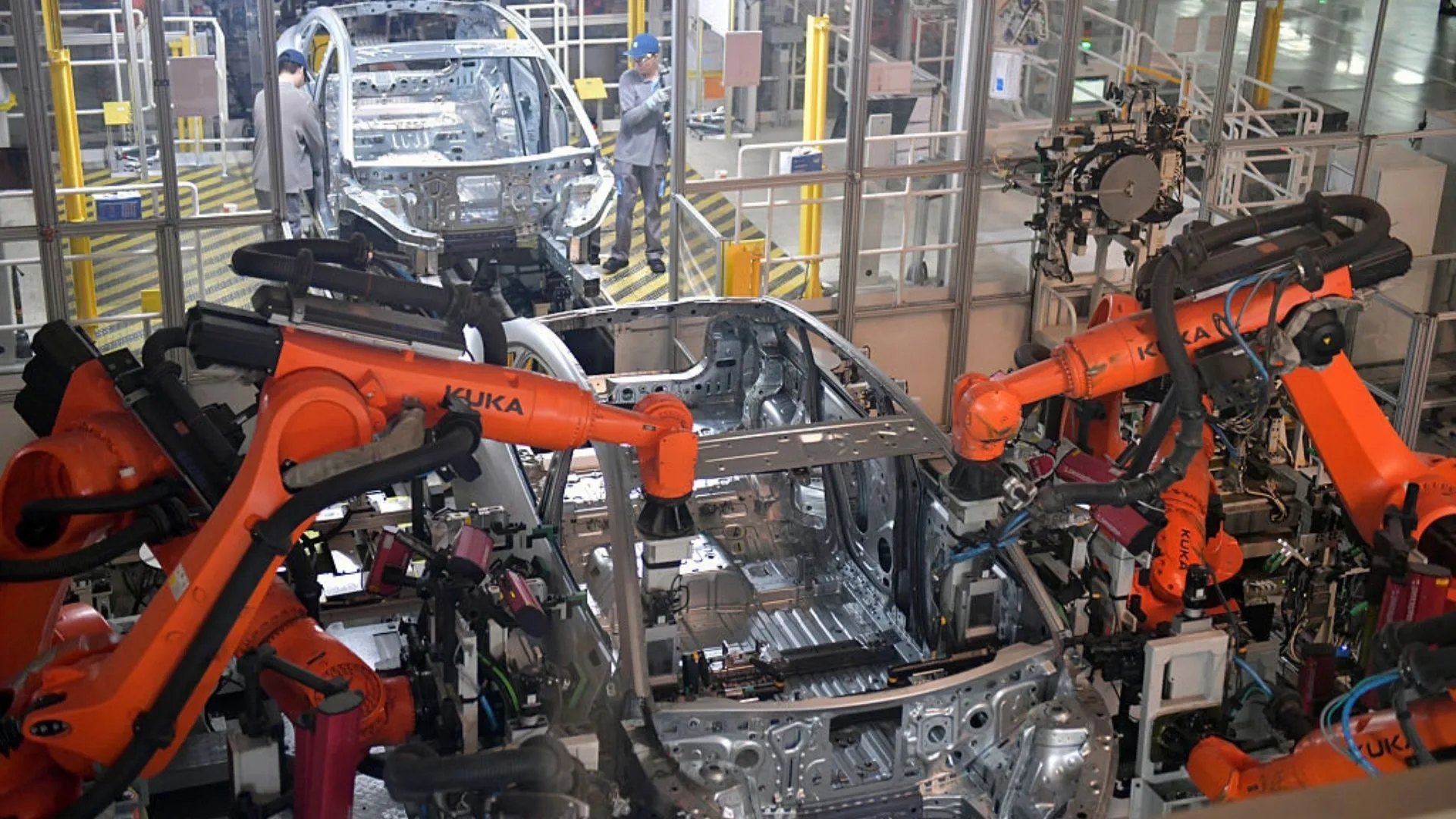
Those words, offered on TikTok by a young computer engineer, were meant to encourage another creator whose video had already gone viral. That first clip, posted by @rx7trev, is only 11 seconds long. The camera points at his feet as he pushes a cart through the aisles of Target. He is wearing a red vest, the unmistakable uniform of an employee stocking shelves. Across the screen, the text reads: “i have a bachelors degree in aerospace engineering. make sure yall intern. it’s tough out here.” No words are spoken. None are needed. The silence is its own kind of statement.
More than 2.2 million people have watched that short video, and the reaction has been overwhelming. In the comments, people described completing multiple internships and still being unemployed. Others wrote they had earned advanced degrees, even Ph.D.s, and could not find work. Some pointed out that internships themselves are a privilege, impossible for those who must work full time just to afford tuition and rent. One commenter captured the truth bluntly: “It ain’t the internships. It’s the economy.”
The response video by the young computer engineer tried to reassure @rx7trev, but in doing so it named the reality of my generation. We are not lazy. We are not lacking ambition. We are entering adulthood in what may be the worst times to do so.
TikTok has become a kind of living diary for Gen Z, a place where our daily realities are documented in real time. With a quick scroll through trending videos and their comment sections, anyone can see what young people in America are experiencing. The frustration, the exhaustion, the sense of being gaslit by those in power are all there — unfiltered and undeniable. It is a space where humor, despair, and truth collide, and where stories like @rx7trev’s resonate because they are not rare. They are ordinary.
Every day, more examples appear. A veteran recruiter with more than 20 years of experience told his TikTok followers that the job market is “absolute trash.” He described candidates being ghosted, applications disappearing into automated systems, and the rise of AI programs already being tested to replace human recruiters.
Another recruiter in the life sciences field said she posted one opening for a data scientist and received more than 600 applications. Every one of them was qualified. She still had to reject all but one of them.
A young job seeker documented how he applied to 237 jobs in just five days. Nearly 200 of those employers never responded. Dozens more rejected him. In the end, he received a single offer.
These stories align with what Federal Reserve Chair Jerome Powell admitted recently. Speaking after the Fed’s September meeting, he acknowledged that “kids coming out of college and younger people …are having a hard time finding jobs.” He went further, suggesting that artificial intelligence may already be reshaping opportunities for young workers.
“There may be something there,” Powell said. “It may be that companies or other institutions that have been hiring younger people right out of college are able to use AI more than they had in the past. That may be part of the story.”
The Bureau of Labor Statistics confirms the scale of the problem. Unemployment for youth aged 16 to 24 reached 10.8% this July, higher than the year before. For Black Americans, the unemployment rate climbed above 7%.
These numbers are not just percentages. They are people. They are classmates, neighbors and friends, many of whom are staring at diplomas while wondering how to pay rent.
Economists have long studied what happens when young people graduate into a weak job market. The opportunities lost in those first years are not easily replaced. Salaries often start lower and grow more slowly, homeownership gets pushed further into the future, and the foundation for building wealth becomes shakier.
What makes this moment even harder is the silence from those who should be fighting for us. Politicians and leaders often dismiss the reality of what is happening. That silence is not accidental. It is the product of a democracy where young people continue the American tradition of voting at lower rates than older generations.
Politics bends toward those who show up. With an election ahead in 2026, we, Gen Z, have a chance to show that we care not only about documenting our frustration on TikTok, but also about shaping our future through the ballot box.
We are living in a time when technology is transforming work, when the promises of education and effort no longer align with lived experience, and when the choices of older generations weigh heavily on our present.
To observe this moment is to understand that our story is still being written. The question is whether it will be remembered as a time when a generation was dismissed, or as the point when the country finally listened.



